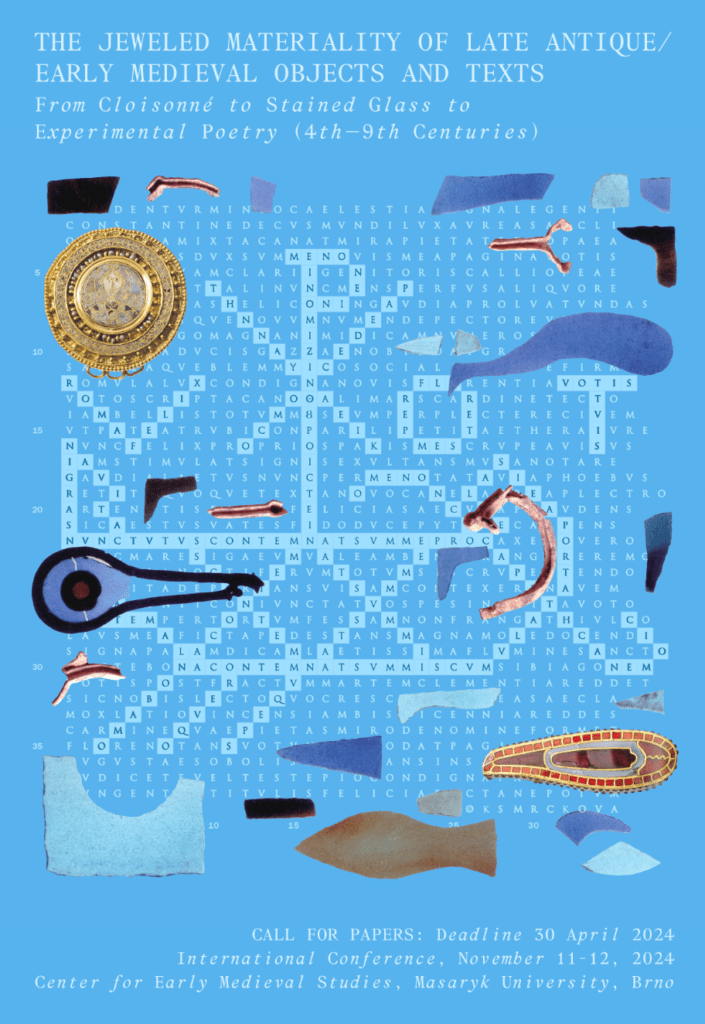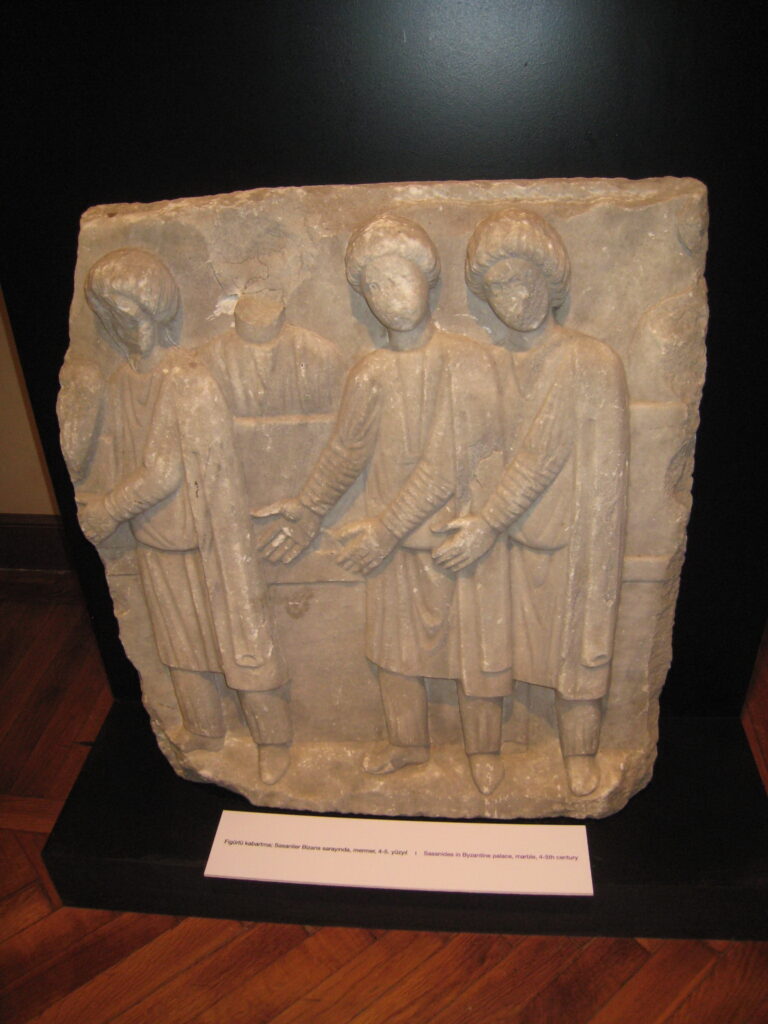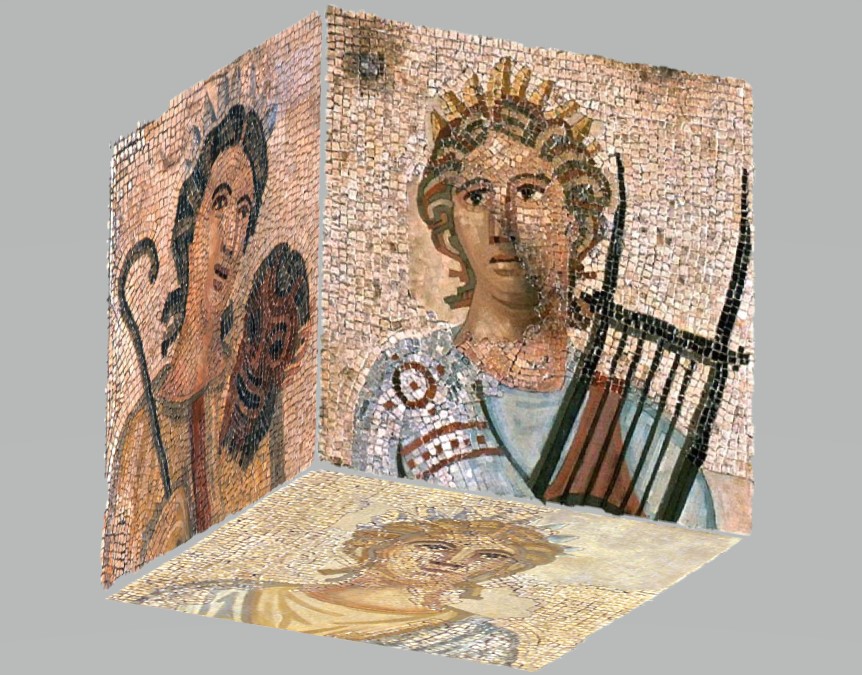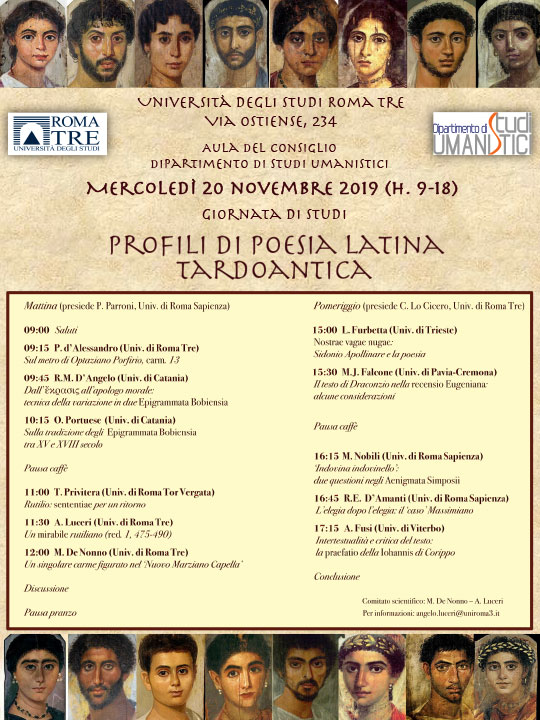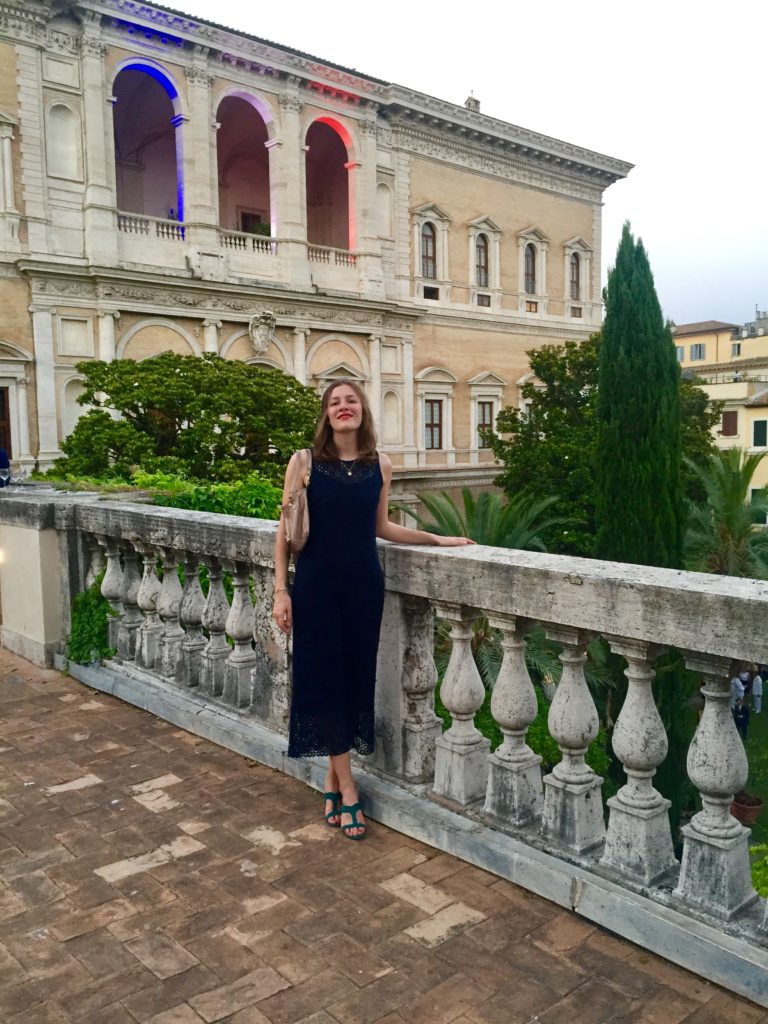Call for Papers. Deadline 30 April 2024
The Jeweled Materiality of Late Antique/Early Medieval Objects and Texts From Cloisonné to Stained Glass to Experimental Poetry (4th–9th Centuries)
International conference, November 11–12, 2024
Center for Early Medieval Studies, Masaryk University, Brno
Organizers: Alberto Virdis, Marie Okáčová
The interface among the material, visual, and literary cultures of the long late antiquity and beyond has become a topic of scholarly interest ever since the publication of the seminal 1989 book The Jeweled Style by Michael Roberts. The visual–verbal dialectics of this period of geopolitical and cultural transformation, as manifested in various instances of spoliation, patterns of fragmentation, and a preoccupation with (exquisite) detail in different cultural media, were subsequently studied especially by Jaś Elsner and Jesús Hernández Lobato. The topical relevance of Roberts’ original concept more than 30 years after its invention is clear from, among other scholarly endeavors, the recent edited volume A Late Antique Poetics? The Jeweled Style Revisited (2023), which offers numerous insightful contributions on the topic across different genres, regions, and temporal contexts.
Read on via ResearchGate

